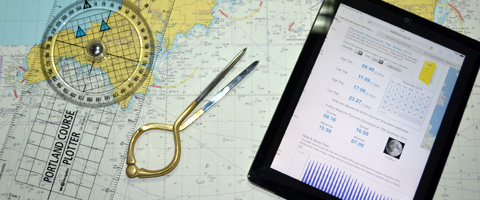Have a plan
Be prepared; think ‘what if’? Have a plan and ensure that your boat is adequately prepared.

Be prepared
Be prepared; think ‘what if?’. Don’t ruin a good day out on
the water with insufficient planning.
The extent of your plan will differ depending on the type of
boat you have and the type of trip to want to take. A day in an estuary will
need less planning than an offshore channel crossing for example.
Essential elements to your plan
Passage
plan: This
needn’t be complicated but an element of planning is required for even the
simplest, and shortest of journeys. The plan will include elements including;
your route, any hazards or navigational risks that need to be avoided and
constraints that may limit your options. Passage planning is in fact an
obligation for all seafarers by international agreement; SOLAS V.
Remember to plan for the unexpected: just in case weather conditions
deteriorate or you suffer an injury look at the charts and pilot book before
you leave and consider places where you could take refuge if necessary. Could
delays lead to night time boating?
Navigation dangers: check with an up-to-date chart and current
pilot book or almanac for any navigational dangers such as shoals, overfalls
and buoyage.
Weather: before
you go check the weather forecast and get regular updates if you are planning
to be out for any length of time. Read more about weather forecasts.
Tides: check
the tidal predictions for your trip and ensure that they fit with what you are
planning to do. Why are tides important?
Limitations of the boat: consider
whether your boat is up to the proposed trip and that you have the appropriate safety
equipment and stores with you.
Engine: checking your engine before you set off could avoid breaking down when you are underway. Read more about engine checks.
Crew: take
into account the experience and physical ability of your crew. Are they up to
the trip you are planning? Are they kitted out with the right personal safety
equipment
Don't forget
Don't forget to share your plan: with
someone onshore who knows what to do should they become concerned about your
well-being. You can join the MCA’s free Coastguard
Voluntary Safety Identification Scheme (CG66) which aims to help the Coastguard
get help to you quickly should you get into trouble.
General safety equipment
Contact UsArticle Published: November 15, 2013 14:27
Article Updated: March 19, 2014 11:10